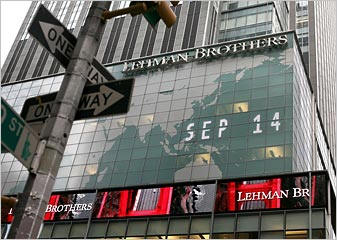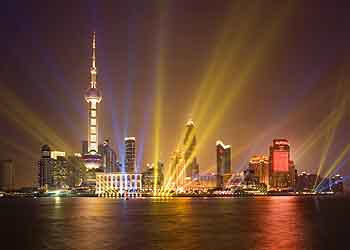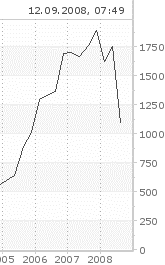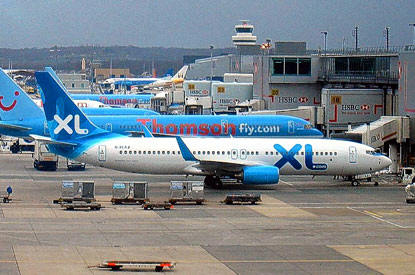|

|
Until this month, few people had ever
heard of, let alone read, a novel by
aspiring Australian writer Harry
Nicolaides entitled Verisimilitude.
According to the author, it was
published three years ago, and in his
own words "pulls away the mask of benign
congeniality that Thailand has disguised
itself with for decades, and reveals a
people who are obsessed with Western
affluence and materialism". The book
sank into immediate obscurity. Only 50
copies were printed, and just seven
sold. Mr Nicolaides, 41, continued to
work in Thailand - as a lecturer in
hospitality and tourism at a university
in the northern town of Chiang Rai. There are plenty of other
foreigners making a living in much the
same way. But one passage in his
forgotten novel has come back to haunt
him. It refers briefly, and
unflatteringly, to the lifestyle of a
crown prince, presumed by the Thai
authorities to be Prince Maha
Vajiralongkorn, heir to the throne. They
have used it as the basis for a charge
of "lese-majeste" against Mr Nicolaides. A warrant for his arrest was issued
in March this year, but - such is the
habitual secrecy that surrounds all
"lese-majeste" cases - he was never
informed of this. He continued to travel in and out of
Thailand on visa runs, until 31 August,
when he was detained as he was about to
board a flight to Australia.
Today he is being held in a remand
centre in Bangkok, awaiting trial.
He was able to raise bail of 500,000
Thai baht ($15,000), but denied it on
the grounds that he might flee the
country. "I feel persecuted, to be honest," he
said. "I don't feel I belong here. I
want to be given a chance to apologise
and explain, but not be in here, and
experience these indignities and
inhumanities," Mr Nicolaides said. He said he was being held in a cell
with 90 other inmates, all of them Thai.
"Someone learned that I am here for
offending the monarch, and I had some
very icy looks from men with tattoos
from neck-to-toe," he said. The
nightmarish situation Mr Nicolaides
finds himself in is a chilling reminder
of the severity of Thailand's "lese-majeste"
law - he faces up to 15 years in jail -
and of the unpredictability of its
enforcement. |
|
|
John Francis Kinsella's novel, Borneo Pulp,
tells the story of how a group of
industrialists planned the destruction
of Borneo's rain forests in their race
for profits. |

|
In the last decades of the
twentieth century the destruction of the
Indonesian rainforest accelerated with the
arrival of large multinational forestry industry
companies. The promoters are Europeans,
Indonesians and Taiwanese, backed by
international banks who vie for a share in the
rich rewards, in total disregard for the
destruction that will be wreaked on the habitat
of the indigenous peoples and the terrible
effect that the mill would have on the natural
environment. John Ennis arrives in Jakarta, on
behalf of the consortium formed to promote the
project, where he discovers an unexpectedly new
world. Assigned to head the development by
Antoine Brodzski the promoter and a Scandinavian
multinational, he is plunged into a conflict of
financial and political interests in Suharto’s
Indonesia, where dollars are more important than
the obliteration of huge swaths of Borneo’s
primary forests and its unique wildlife and
ecosystem. |
|
|
|
|
|
 |
|
Our understanding of
the Universe is
about to change...
The Large Hadron
Collider (LHC) is a
gigantic scientific
instrument near
Geneva, where it
spans the border
between Switzerland
and France about 100
m underground. It is
a
particle accelerator
used by physicists
to study the
smallest known
particles – the
fundamental building
blocks of all
things. It will
revolutionise our
understanding, from
the minuscule world
deep within atoms to
the vastness of the
Universe. Two beams
of subatomic
particles called
'hadrons' – either
protons or lead ions
– will travel in
opposite directions
inside the circular
accelerator, gaining
energy with every
lap. Physicists will
use the LHC to
recreate the
conditions just
after the Big Bang,
by colliding the two
beams head-on at
very high energy.
Teams of physicists
from around the
world will analyse
the particles
created in the
collisions using
special detectors in
a number of
experiments
dedicated to the LHC.
There are many
theories as to what
will result from
these collisions,
but what's for sure
is that a brave new
world of physics
will emerge from the
new accelerator, as
knowledge in
particle physics
goes on to describe
the workings of the
Universe. For
decades, the
Standard Model
of particle physics
has served
physicists well as a
means of
understanding the
fundamental laws of
Nature, but it does
not tell the whole
story. Only
experimental data
using the higher
energies reached by
the LHC can push
knowledge forward,
challenging those
who seek
confirmation of
established
knowledge, and those
who dare to dream
beyond the paradigm.
|
|
|
HURRICANE IKE
HITS GALVESTON
TEXAS |
|
|
|
 |
|
|
DID SOMEONE SAY SOMETHING ABOUT BUBBLES? |
|
SHANGHAI'S PLUNGE CONTINUES AS GAMES
GLORY FADES |
|
 |
| RECESSION
STARTS TO BITE |
|
|
|
 |
MOSCOW STOCKS
TAKE NOSE DIVE
MICEX LOWEST
SINCE 2006 AS
OIL SLUMPS &
GEORGIA CRISIS
BITES |
|
The MICEX Index on
Friday fell to its
lowest level since
June 2006, deepening
Russian markets'
biggest slump since
the 1998 financial
crisis.
Friday's fall — by
as much as 9 percent
in midafternoon
trading — came after
the Central Bank
confirmed that it
had stepped in to
prop up the ruble
amid a strengthening
dollar and falling
oil prices.
Russian markets were
caught in a "triple
whammy" of a global
financial crisis, a
sharp drop in
commodity prices and
a flow of bad
political news, said
Roland Nash, head of
research at
Renaissance Capital.
The markets enjoyed
a measure of relief
later Friday,
recovering on a
report that the
Energy Ministry
planned to propose
raising the
oil-extraction tax
threshold from $15
to $25 per barrel, a
step that would help
to give oil
companies an annual
tax cut of up to $16
billion from 2010.
Ending a week in
which the more
liquid, ruble-denominated
MICEX fell 8.5
percent and the
dollar-denominated
RTS Index dropped 11
percent, the MICEX
closed down 3.7
percent for the day
on Friday, at
1,234.71 points,
while the RTS closed
down 3.8 percent, at
1,469.15 points.
The 41 percent fall
in the RTS since its
May 19 high — when
the index came
within a whisker of
breaking through the
2,500 mark —
represents the
market's biggest
collapse since the
infamous sovereign
debt default and
ruble devaluation of
August 1998.
Nash said that of
the triple whammy
factors, global
financial woes and
falling commodities
prices were much
more significant
than recent
Russia-specific
events, such as the
war in Georgia and
the TNK-BP conflict. |
|
SHILLER ECONOMIC
ANALYSIS - HOUSE
PRICES |
|
|
|
|
|
Why we
might have to go to war with Russia |
|
Sarah Palin
Republican vice
presidential nominee Sarah Palin gave her first
TV interview last night and immediately warned
America that it may have to go to war with
Russia and explained why Israel had the right to
bomb Iranian nuclear facilities. She called for
Georgia and the Ukraine to be included in NATO,
a treaty that requires the U.S. to defend them
militarily. Palin said Russia's attack into
Georgia last month was 'unprovoked'. Asked to
clarify that she'd support going to war over
Georgia, she said: 'Perhaps so.'
|
|

|
ENDANGERED
SPECIES AS ICE
POLAR CAP MELTS
http://www.worldwildlife.org |
|
|
|
BRITISH LOW COST
AIRLINE GOES
BELLY-UP |
 |
|
The collapse of
travel company
XL Group, the
third-largest
package operator
in the country,
is another
gloomy indicator
of the state of
the British
economy. XL was
particularly
exposed to
soaring fuel
costs but the
wider pressures
are clear. Up to
85,000 British
holidaymakers
were left
stranded today
after the UK's
third biggest
tour operator
went bust. XL
Leisure Group
was forced to
cancel all
flights and
ground its fleet
of aircraft. The
company
announced the
news at 3am
after talks to
save it failed
and blaming the
credit crunch
and rising fuel
prices for the
crash. The Civil
Aviation
Authority has
promised to fly
home passengers
caught up in the
collapse and
estimates that
the number could
hit 85,000. A
further 200,000
people had
booked holidays
with XL and will
now have to make
new
arrangements.
Many may not get
their money
back. The move
took holiday
makers by
surprise,
prompting angry
scenes at
airports-XL had
been taking
bookings until
very recently.
At Gatwick, XL
customers told
of their fury at
not discovering
the news until
they arrived
there. Many were
informed by
airport
officials,
prompting a
scramble for
tickets on
alternative
airlines. Many
others simply
turned at the XL
check-in desks
and headed home.
|
|
|

| Lehman Brothers
is thought to have approached Bank of
America as it actively seeks a buyer for
the whole group, it emerged yesterday.
The news came as continuing concerns
about the brokerage’s financial
stability dragged its shares down by a
further 42 per cent Lehman is thought to
have approached several potential
buyers, who were poring over its books
yesterday, as the beleaguered bank’s
ability to survive as an independent
entity was called further into question
after Moody’s said it must find a strong
financial partner if it is to escape a
credit-rating cut. However, analysts
cautioned that it may be difficult for
Lehman to strike a deal without
government support, because of its
precarious financial position. |
|
|
|
|